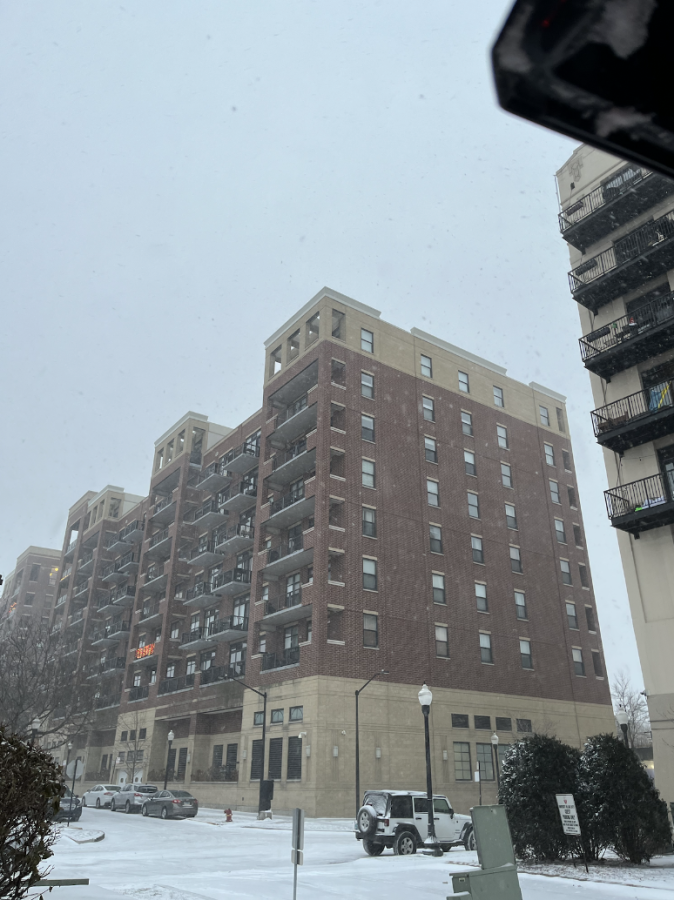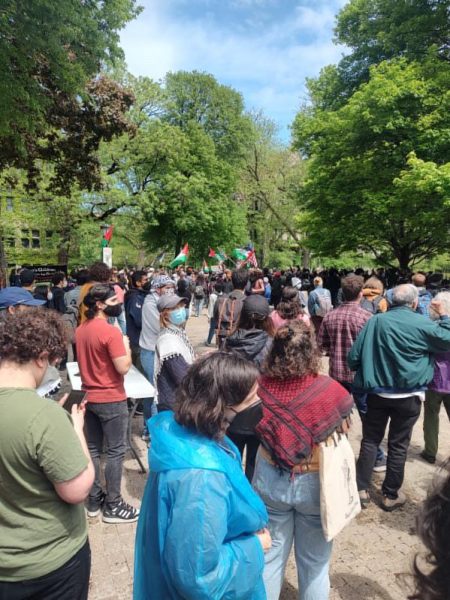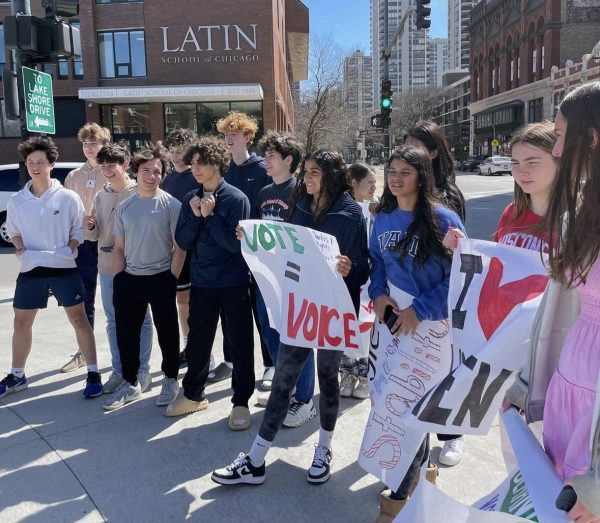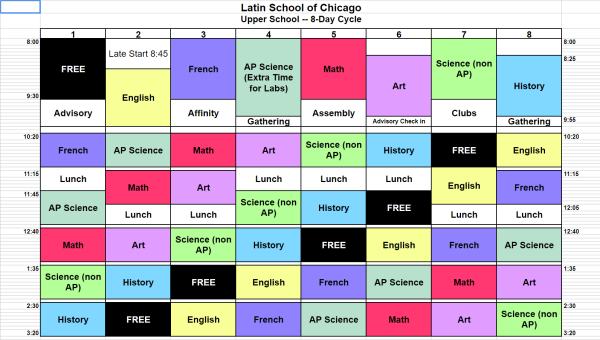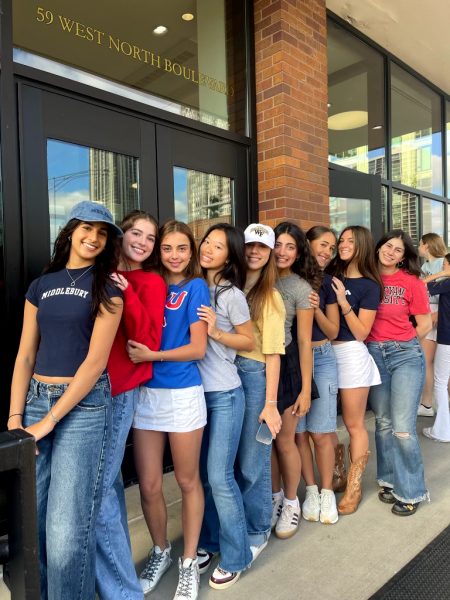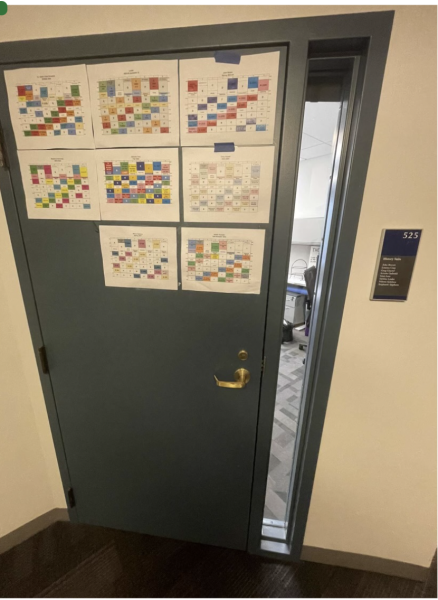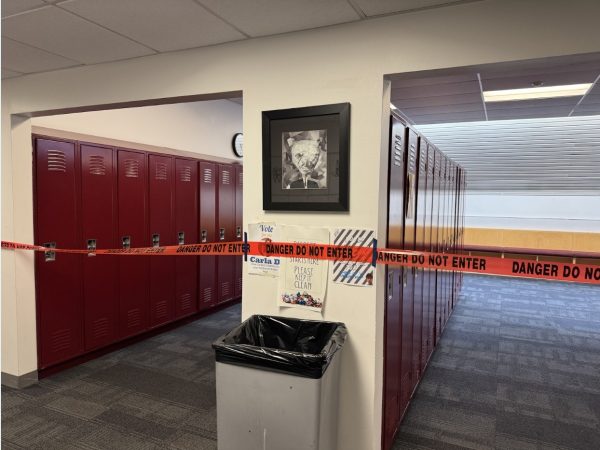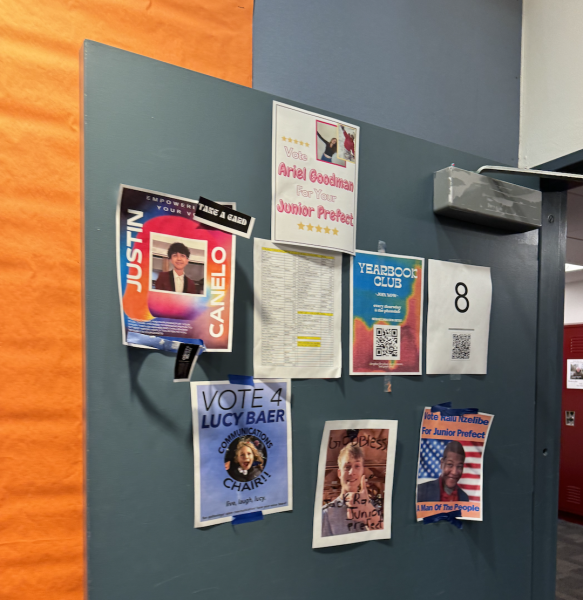Storm Elliott Disrupts More Than Just Airlines
For Latin students, winter break is a time to close Canvas, silence Gmail, and enjoy two weeks without work. Whether that means ice skating at Maggie Daley Park’s Ribbon, viewing Lincoln Park’s Zoo Lights, or flying to spend the holidays with friends and family, winter break guarantees something many Latin community members look forward to: a refresh.
But, on December 22, the Midwest faced yet another travel shutdown. News of severe weather and warnings of a bomb cyclone shut down all winter break activity, leaving the Latin community in an all-too-familiar state of isolation.
Winter Storm Elliott, also known as a bomb cyclone, brought about rapid temperature drops and severe conditions. Bomb cyclones represent a barometric pressure drop of at least 24 millibars in 24 hours, resulting in frigid temperatures, intense winds, and heavy snow.
“I thought the cold weather that came with Elliott was brutal, even though I was outside a few times for just a couple of seconds when getting in and out of the car,” senior Mia Lapiere said. “The strong wind that came along with the cold weather made it even worse.”
Winter Storm Elliott started in the Pacific Northwest on December 20 and reached two-thirds of the United States within a few days. Roughly 1.6 million electric customers lost power on the East Coast. Snyder, New York received 39 inches of snowfall; Elk Park, Montana recorded a wind chill of negative 74 degrees Fahrenheit; airlines canceled 8,000 flights on December 22 and delayed roughly 3,000 flights; and deaths were reported in at least 12 states, including Illinois.
The National Weather Service observed wind gusts of 35 to 55 miles per hour that caused “life-threatening wind chills,” ranging from negative 35 to negative 60 degrees Fahrenheit. As a result of such extreme temperature drops, it could only take five to 10 minutes of exposed skin for frostbite to occur.
On December 23, roughly 325 million Americans from the Pacific Northwest to the Gulf Coast received cautions of severe winter weather hazards. From the Oval Office, President Joe Biden said, “I encourage everyone to please heed the local warnings. This is not like a snow day when you were a kid. This is serious stuff.”
Upper School English teacher Brandon Woods confirmed these advisories during his trip to Seattle. “We started getting the news reports that there was going to be a sleet storm and it was going to freeze over,” he said. “They were telling everyone to just stay in and don’t go on the streets.”
Some Chicago residents found it extremely difficult and risky to leave their homes during the storm. “Doing simple things like getting groceries were hard because even the shortest trip from car to building left my entire body freezing,” sophomore Alek Branovacki said.
Mia expressed similar difficulties, saying, “I drove to places I normally walk to, like the coffee shop across the street from my house, just because it was so hard to brace the cold.”
Even worse, people could not rely on delivery companies for food and groceries. DoorDash, America’s primary grocery delivery operator, was forced to shut down temporarily during Storm Elliott.
Junior Rowan Ing faced airline complications when Southwest Airlines canceled 3,000 flights and delayed over 400 during Storm Elliott. His flight, which was among the 400 delayed, took off several days later than its original scheduled departure date. “The night before, my family heard that flights were delayed and hoped ours wasn’t,” Rowan said. “The flight was delayed [for] four days later so we switched to American, hoping it would be more reliable.”
In addition to airplanes, other modes of transportation including buses and trains also faced weather-induced hindrances. Amtrak, the nation’s largest passenger train service, and Greyhound, the largest intercity bus service in North America, announced cancellations and delays. They offered phone numbers for customers to reschedule their rides.
“We were forced to be inside; they closed down public transit. You just couldn’t get around the city,” Mr. Woods said, describing his stay in Seattle.
Because many feared leaving their homes, it is safe to say that Latin students felt Storm Elliott cheated them out of several days of their break. Alek said, “It was really tough to stay indoors all day, especially when it was break time and a time to catch up with people.”






































